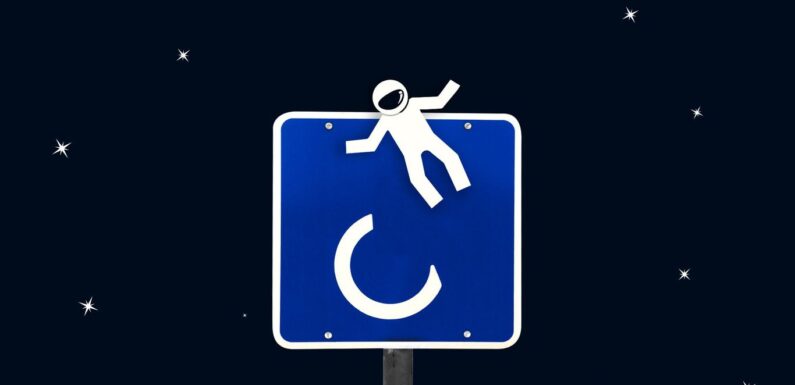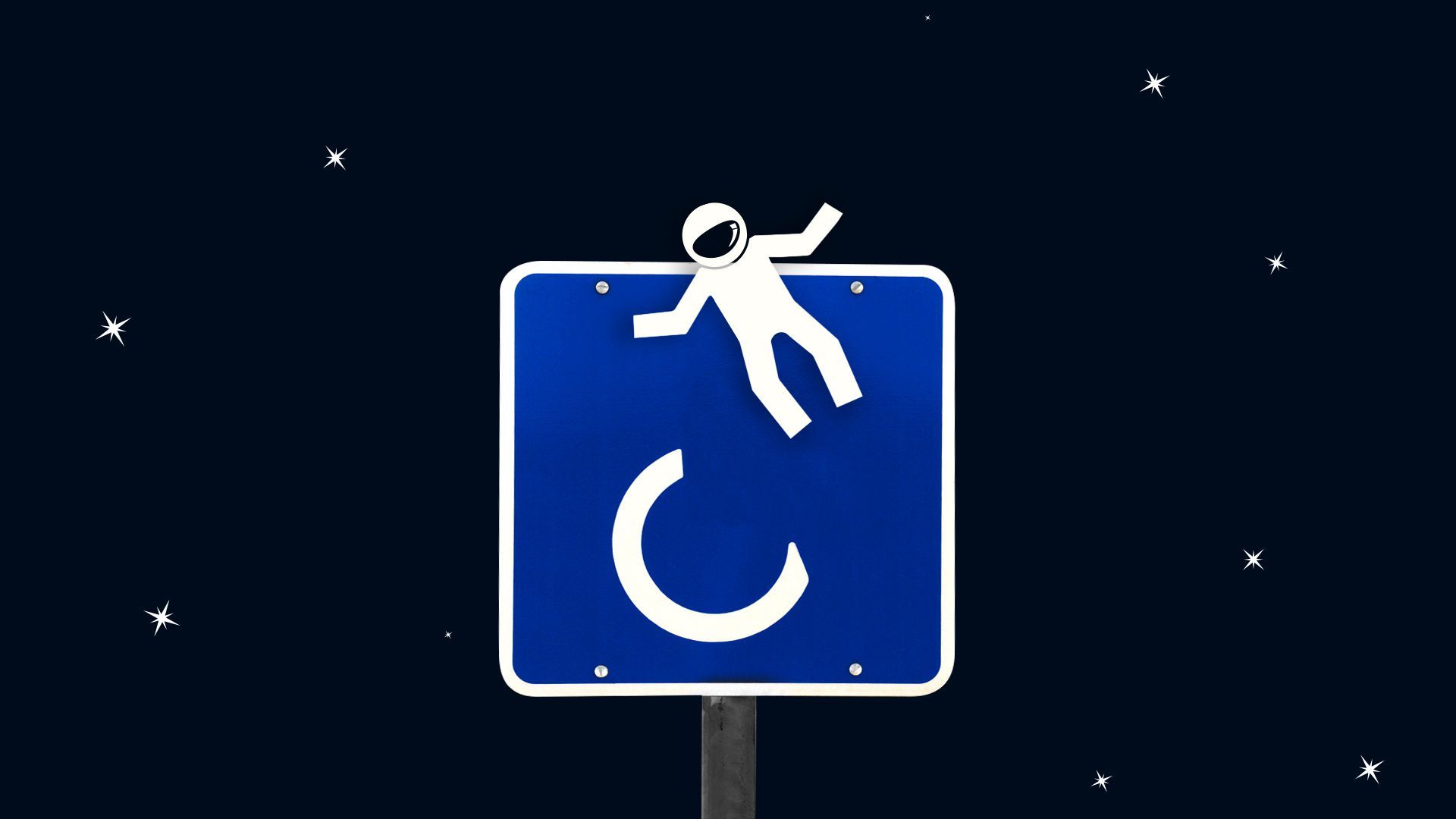
Illustration: Aïda Amer/Axios
Space travel experts are advocating for people with disabilities to be eligible to fly to orbit and beyond.
Why it matters: Long-held beliefs about who is best suited for space travel have limited the industry and those it inspires. Widening the scope of who is considered fit for spaceflight could help invite more people to be invested in the future of humanity in space.
- Space agencies and the industry appear to be on the verge of understanding that perhaps the people who have always gone to space aren't the only ones able to, says Sheri Wells-Jensen, a professor of linguistics at Bowling Green State University.
- "So, the rules are different," Wells-Jensen tells me. "What even is disability in space? If nobody's walking, then who cares about walking?"
Driving the news: Last week, the European Space Agency announced its parastronaut feasibility project to recruit people with certain physical disabilities to research how they might one day go to space.
- The space agency is looking for volunteers who have a lower limb deficiency, pronounced leg length difference or short stature.
The rise of commercial spaceflight is already changing the image of who can go to space.
- Hayley Arceneaux, one of the crew members expected to fly to space with the Inspiration4 mission later this year, is a childhood cancer survivor with a prosthesis in her leg.
- She will become the first person with a prosthesis to go to space.
- Having a prosthesis "in this spaceflight scenario shouldn't limit you in any way, but it's just because we have all of these norms that come from particular social biases that make us think that disabled people should be able to do less," Ashley Shew, a professor at Virginia Tech said.
Spacewalking in microgravity might be easier for a person who has relied on technology — like a wheelchair — for their mobility before, allowing them to work more easily in a spacesuit.
- Using the bathroom in space is a challenge because of the lack of gravity, and toilet maintenance takes time that could be better spent on science or other tasks.
- But a person who uses an ostomy bag in space, for example, wouldn't need to worry about the toilet at all.
Yes, but: While ESA's parastronaut feasibility project might be a step in the right direction, some experts are worried about the messaging around the project.
- "These astronauts should be seen as helping the program become more inclusive" instead of framing it as a question of whether having disabled people in space is feasible, Shew said.
Flashback: In the 1950s, NASA recruited men from Gallaudet University who became deaf and sustained damage to their vestibular systems, making them effectively immune to motion sickness.
- The 11 men were studied by scientists who wanted to learn more about how they handled environments in which many people get disorienting motion sickness, in order to help NASA astronauts going to space.
- "They were never considered recruits, even though they were considered superior in terms of how they would fare in space," Shew tells me.
What to watch: Designing spacecraft for people with disabilities would make life easier for all astronauts, even those considered able-bodied, experts say.
- While NASA and other agencies are expected to do everything possible to keep astronauts safe, accidents will happen as humanity pushes further into space, Wells-Jensen says, adding that "disability will happen."
- "So we design our system so that everyone can use them," Wells-Jensen adds.
Source: Read Full Article
